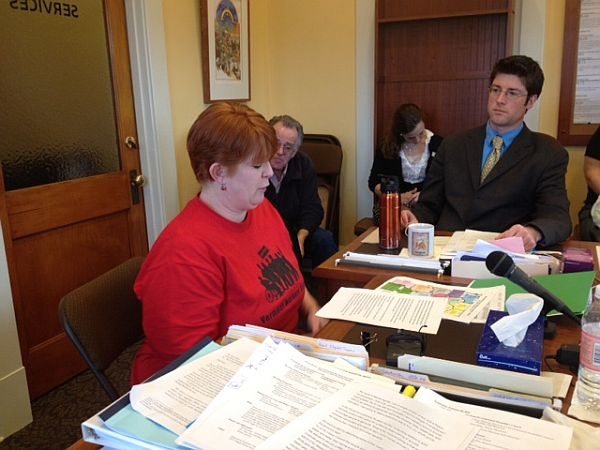
Advocates and low-income people are pushing back on Gov. Peter Shumlin’s proposed cuts to the state’s main welfare-to-work program.
Eight women, many of them single mothers, came to the House Human Services Committee this week to put a face on the budget decisions facing lawmakers.
Martha Aguila of St. Johnsbury fought to hold back tears as she talked about their financial struggles.
"If the governor is saying that people that are staying on Reach-up is better than having a job, to us it shows that we need better employment opportunities, not worse Reach-up," she said.
Gov. Shumlin wants to cut $6 million from the Reach-up program. He’s also wants recipients to leave the program after three consecutive years, with a lifetime cap of five years.
But Aguila and others in her group said they want to work, but good jobs aren’t available. One woman talked about driving 25 miles one-way from St. Johnsbury to Woodsville, N.H. to work at a McDonalds. She said she lost her job because she didn’t have adequate child care when her daughter got sick with pneumonia.
Several of the women said they didn’t have a car, or couldn’t afford to drive to find work. Starr McIntrye is a single mother from St. Johnsbury who recently graduated from high school. She said she depends on others for rides.
"I have no transportation of my own. I do have my own apartment, and Reach-up helps me pay my bills," McIntrye said. "But at the end of the month it’s still not enough. If I did have a car I still wouldn’t be able to afford gas."
The governor’s proposal to end Reach-up benefits permanently after five years is a reversal. Last year, his administration advised against that policy change.
In a report submitted to the Legislature, the administration said that ending benefits after 60 months could leave families "destitute and at risk."
Vermont Legal Aid lawyer Christopher Curtis said last year’s report undermines the governor’s new proposal.
"The administration needs to justify this proposal in the context of the data that shows that the vast majority of Reach-up participants are doing what they’re supposed to do," he said. "Many of them are working and to arbitrarily cut them off is going to increase costs in other areas of state government. That’s a bad outcome."
Dave Yacovone, the commissioner of the Department of Children and Families, is the administration’s point-person on the Reach-up plan. He said the proposal to curtail up benefits needs to be viewed along with the governor’s other efforts to help low-income people. The centerpiece of that plan is a big boost in child care benefits.
"That helps a lot with the transportation costs," he said. "This proposal of asking people to have a time limit on the Reach-up program, it cannot work without the child care investment. I wouldn’t be recommending it now if we weren’t putting as much in child care."
But the governor’s plan faces close scrutiny in the Legislature. Rep. Ann Pugh, D-South Burlington, chairs the Human Services Committee, which plans to examine the state’s public investments in human services programs.
"Are they getting the results that we want? Are people leaving Reach-up for a job, for a job that pays them? Are they staying off Reach-up? Are kids doing better?" Pugh said.
Pugh said she wants to ask the author of last year’s Reach-up report – which said benefits should not be terminated – to testify before her committee.